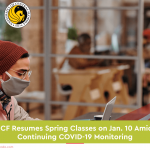Key Takeaways:
- Students will have to follow new regulations in entering Canada amid the pandemic.
- The Canadian government has specified who are considered fully vaccinated individuals.
- Students entering Canada have to undergo pre-border, at the border, and after-entry phases to avoid penalties and negative consequences.
With new regulations in entering Canada, students must adapt to the changes to avoid penalties and negative consequences starting July 5. This is in conjunction with the guidelines released by the Canadian government on travel, vaccination, testing, quarantine, and borders.
While a new ruling has been issued, exemptions apply to eligible individuals, particularly those fully vaccinated.
Fully vaccinated individuals are those that have received the full series of a vaccine or a combination of vaccines accepted by the Government of Canada (Pfizer, Moderna, AstraZeneca, Janssen) at least 14 days before entering Canada.
These newly-released regulations on entering Canada have compelled recruitment partners and higher educational institutions (HEIs) to immediately inform their students to keep them aware of the processes they need to follow.
Eligible students may be allowed entry to the country because they belong to the permitted group alongside foreign nationals reuniting with their family, visitors, foreign workers, and those who are caring for others, funerals, and support.
For fully vaccinated students, partners must inform and guide them through the three phases: pre-border, at the border, and after entry, respectively.
Pre-border
Students entering Canada must plan for quarantine upon landing. They must also pre-register for their arrival test if they need it.
Within 72 hours before their arrival to Canada, here are the things that students need to do: take a COVID-19 molecular test and use ArriveCAN to enter their information. Students can have their ArriveCAN receipt and documents ready, including a digital or paper copy of proof of vaccination.
Here are the documents that they need to put together:
- contact and travel information;
- their 14-day travel history;
- quarantine plan;
- confirmation of a negative pre-entry test (or positive test taken 14-90 days before travel);
- proof of their vaccination (must be in English or French, or a certified translation); and
- COVID-19 symptom self-assessment
At the border
The next phase will take place at the border, where the students will be asked to provide required information and documents, including proof of vaccination, if requested. In this part, they will answer all eligibility, vaccination, and health screening questions.
Also, students will be compelled to complete their arrival test on-site if services are available. Otherwise, they can collect a home test kit to use when they arrive at their destination.
Once students have learned if they exhibit symptoms or do not meet the exemption requirements, they can now follow the instructions provided by the government representative.
After entry
Once done with the first two phases, students can now head to the third and last phase of the process of entering Canada. If they meet all the entry requirements and are fully vaccinated, they are exempted from having quarantine, government-authorized hotel (air travellers), and day eight test.
If the students got a home test kit, they will have to complete it and send it to the lab. If their arrival test is positive, however, they must follow the instructions of their local public health authority, including quarantine or isolation. With this, the students must keep their proof of vaccination for a total of 14 days.
Read more:
- Canada COVID-19 Update: Entry of International Students to Ontario To Be Suspended
- Eligible International Students Remain Welcome in Ontario
- Canada Allows Entrance of Vaccinated Int’l Students
Abcodo is the in-house recruitment partner of MSM Unify, a student recruitment and marketing platform that connects partner schools to top-tier agents and their students worldwide. Sign up now to get the latest updates and information on international student recruitment.









